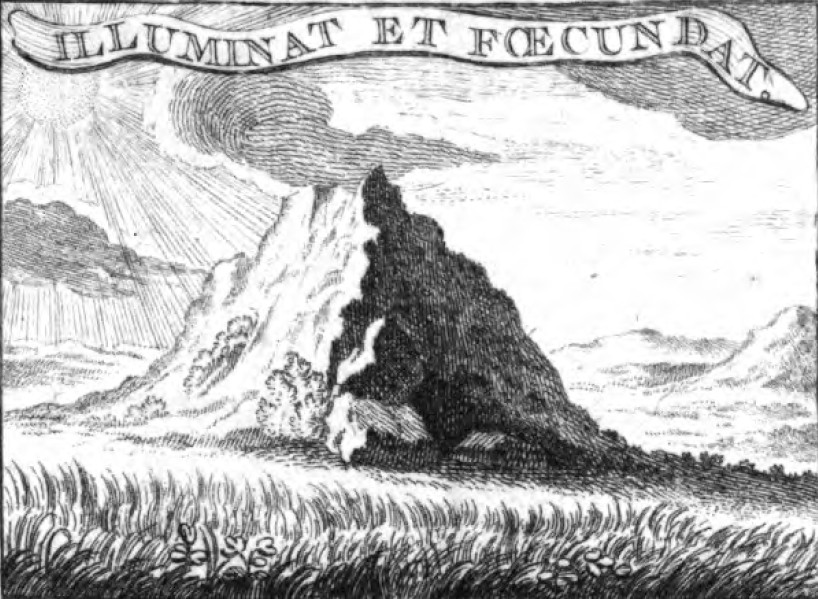News | Wednesday, 4th April 2018
Maverick philosopher’s provocative texts translated into English for first time
Andre-Pierre Le Guay de Prémontval’s theories on God, creation and free will were radical

The works of an iconoclastic 18th century French philosopher who railed against accepted religious beliefs of the age have been translated into English for the first time.
Andre-Pierre Le Guay de Prémontval’s theories on God, creation and the nature of free will clashed with those of esteemed philosophers Descartes, Leibniz and Wolff, who he denounced in bombastic style during his time as a member of the Berlin Academy of Sciences in the 1750s and 1760s.
Yet despite anticipating modern developments in open theism, process theology and animal theodicy, Prémontval remains virtually unknown in the English-speaking world.
Provocateur
Dr Lloyd Strickland, Reader in Philosophy at Manchester Metropolitan University, has published The Philosophical Writings of Prémontval, featuring the maverick thinker’s key philosophical writings in English for the first time along with a detailed overview of his life and theories.
Dr Strickland said: “Prémontval’s philosophy is notable for a number of original and often provocative positions on key philosophical issues of the time, which he supported by inventive critiques and a raft of novel arguments.

“In addition to developing a highly original proof for the existence of God based on the principles of atheism, Prémontval argued that all possible beings exist, and do so necessarily and therefore eternally.
“He insisted that the universe unfolded through an interplay of chance and necessity, its direction influenced by God but not under God’s direct control; and he considered free will a curse and the main impediment to the realisation of the only aim fitting for God, which was to make all beings happy and holy as quickly as possible.”
Stinging attacks
Born in a Parisian suburb in 1716, Prémontval developed an early interest in philosophy and became a self-styled yet successful Professor of Mathematics. He left France in 1744, travelling to Switzerland and the Netherlands where he published a number of books.
But it was upon his arrival in Berlin in 1752 that he began a prolific 12-year period which lasted until his death in 1764.
Becoming a member of the renowned Berlin Academy, given new life by the Prussian king Frederick II, Prémontval joined the class of speculative philosophy.
Here he published stinging attacks on Academy president Pierre-Louis Maupertuis and his proof of God’s existence, before turning his ire to Gottfried Wilhelm Leibniz and Christian Wolff, accusing the former of fatalism and the latter of basing his philosophy on circular definitions.
He considered free will a curse and the main impediment to the realisation of the only aim fitting for God, which was to make all beings happy and holy as quickly as possible.
Prémontval published six books between 1754 and 1757, including provocative works on the reality of chance in the universe, and presented his controversial theories as ‘Universal Protestantism’ – even though they endorsed an unorthodox conception of God as neither free nor the creator of the world. Prémontval’s two volume Philosophical Views was placed on the index of prohibited books in 1761.
Upon his death in 1764, the Academy’s secretary, the renowned philosopher Samuel Formey, delivered Prémontval’s eulogy despite their often acrimonious relationship.
Despite being held back by his passion and inability to keep a cool head, he praised Prémontval’s ability to challenge accepted wisdoms.
He said: “No-one knew better than he how to follow the thread of an analysis, handle distinctions, and sometimes extract gold from the mud, though much more often extract mud from what had hitherto been regarded as gold.”
'Essential reading'
Dr Strickland said: “In recent years there has been an increasing tendency within the history of philosophy to study figures who were previously considered minor and hence marginalised, if not ignored.
“Books like The Philosophical Writings of Prémontval are essential for further understanding and enriching the intellectual background of the early modern period as well as for presenting students and scholars with novel ideas and arguments.
“Prémontval was a worthwhile choice because he represents the climax of the early modern tradition of speculative metaphysics and so is an excellent source and summary for many of the key issues in metaphysics discussed by the continental rationalists of the 18th century.”




